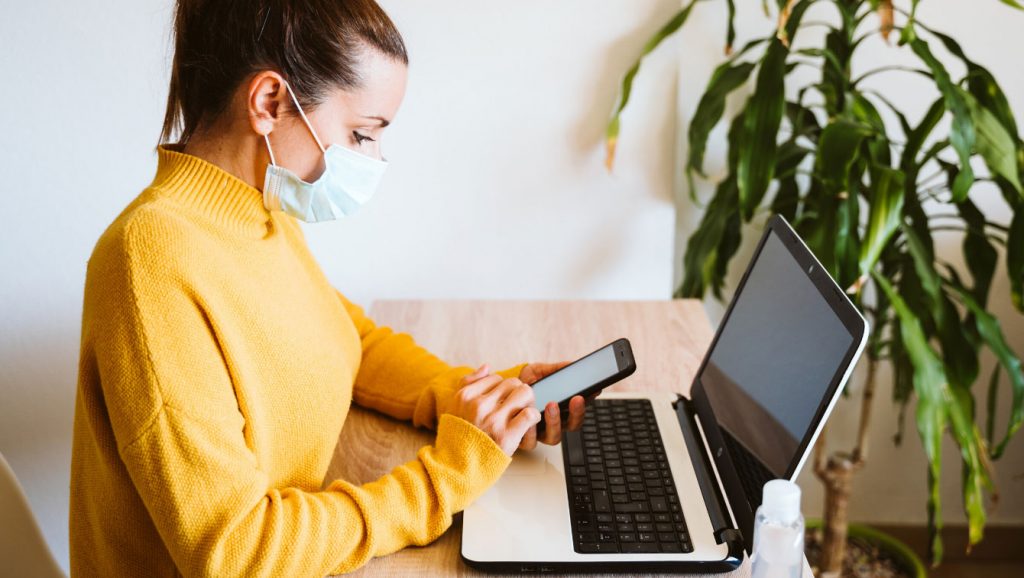How to Manage Accountability in a ‘Work From Home’ Environment

As technology advances, and employees are looking for more job flexibility, the number of people working from home has been on the increase and leaders need to learn how to manage accountability. Due to the current pandemic crisis working from home has now become a reality for many more people, and many businesses and employees will see this change as an opportunity to change the way they work in the future.
There are many benefits for businesses to increase the number of employees ‘working from home’. It can improve productivity, especially since hiring remote workers could mean it is easier to scale up. Your pool of employees could grow easily, and you would be able to hire highly skilled individuals to drive your business to success without having to worry about overhead expenses and logistics, and they could work from anywhere in the world.
In addition, being given the chance to work from home could boost your current workforce’s productivity and morale too. Studies have shown that individuals who have more freedom and flexibility while working produce more creative and innovative ideas, and higher quality output.
While it offers many great benefits, there can be more challenges for both leaders and team members working from home. Difficulties often include issues with connectivity, focus, reliability, and accountability. To bringing out the best in your employees it is important to be proactive and encourage accountability.
Here are some tips on how to manage accountability in a work from home environment:
1. Communicate
In any kind of work arrangement, communication is the key of establishing trust, accountability, and reliability.
It is important as a leader, that you communicate everything you can with your team in order to avoid any potential confusion, conflict or loss of productivity. Whether you are communicating to check in with your colleagues, attend meetings, clarify schedules, or report urgent matters, reach out as often as you can to foster your relationship with your team members.
2. Schedules and Routines
Flexible schedules are one of the biggest advantages of a work from home arrangement. Most work from home job opportunities allow workers to do the work on schedules they prefer without having to conform to the standard 8-hour schedule.
Unfortunately, this is also the biggest cause of distraction for most individuals who work remotely. Many first-time remote employees find it difficult to balance their workload with their personal responsibilities, especially since they are given the opportunity to complete both at the same time.
Creating schedules and forming routines will help you remain focused and accountable of your actions and projects while working from home. If you have complete control over your work hours, find the times of day when you are at your most productive and make sure to complete your tasks during that time period. If you are on a fixed schedule, treat it like an office job and give yourself deadlines within the day to help you focus more.
3. Separate your space
It is more fun to work from home because you can work literally anywhere in the house as you please. You do not have to struggle your way through your work hours inside your cubicle in a freezing office surrounded by your chatty colleagues anymore. But just like flexibility in work hours, having the option to work on your couch can also cause more distractions than you may notice.
Create a separate space in your house to help you stay in the zone while working. It could be a small corner in your bedroom or a portion of the dining table – it just needs to be a separate space where all the work can happen.
4. Eliminate distractions
Do you watch TV a lot? Or maybe spend plenty of time on social media? No matter what your distractions are, you need to proactively eliminate them to achieve maximum productivity and accountability while in a work from home environment.
Working miles away from your team and supervisors will allow you the freedom to turn the TV on whenever your favourite show airs, run to the fridge to whip a tasty snack, or pick your phone up to chat with friends and get lost in the world of social media. Figure out which activities take most of your time and attention and allow yourself to minimise them during work hours.
Set time aside for work, preferably when you have just had a meal or snack, do not have anything to watch on TV, or when your social media apps are not as busy. If not possible, just detach and remove the distractions while you work. Work in a different room from your fridge, TV, and put your phone down to be able to focus on your projects and assignments for the day.
5. Condition yourself
The work from home environment is generally more comfortable than working at an office. You get to wear anything, sit on your favorite chairs, eat whatever you crave for, listen to music that relaxes you, and many more.
It is easy to get distracted and lose accountability of what you are assigned at work. One of the greatest and most effective ways to keep yourself focused and accountable is to condition yourself to function as if you are still inside an office, working closely with your bosses and colleagues. Try to stay away as much as possible from activities that you will not normally engage in when you are not working from home.
This way, you get to keep your momentum and finish your workload in the same amount of time you would in an office (or even less!) and start on the daily activities you have that are not work related.
Get in touch with Leadership Coach in Sydney Carrie Benedet today if you need help on how to manage accountability in a work from home environment.





Responses